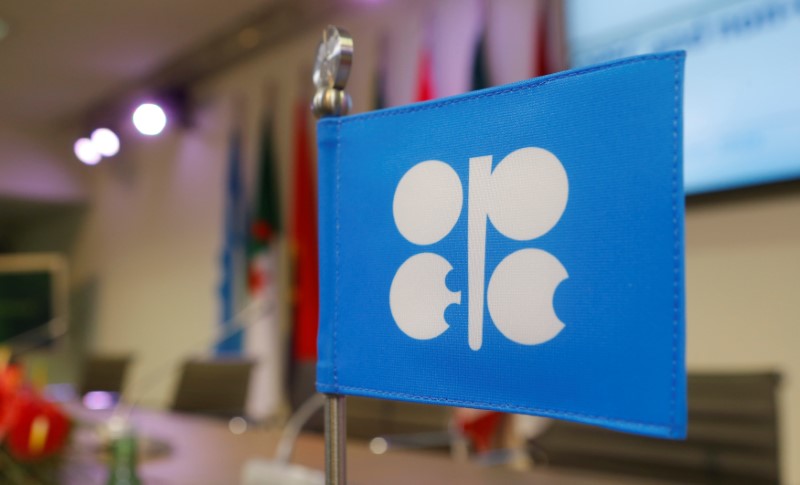By Alex Lawler and Rania El Gamal
LONDON/DUBAI (Reuters) - OPEC oil output is likely to fall for a third straight month in March, a Reuters survey found on Wednesday, as the United Arab Emirates made progress in trimming supplies while maintenance and unrest cut production in exempt nations Nigeria and Libya.
The reduction by the UAE has helped boost OPEC compliance this month with its production-cutting deal to 95 percent, up from an initial February estimate of 94 percent and a record high, according to Reuters surveys.
The Organization of the Petroleum Exporting Countries pledged to reduce output by about 1.2 million barrels per day (bpd) from Jan. 1 - the first accord on supply curbs since 2008. Non-OPEC countries pledged to cut about half as much.
In comments made to Reuters, OPEC Secretary-General Mohammad Barkindo said the OPEC and non-OPEC agreement "is gradually, but steadily working its way to restore balance to the oil markets".
"The rebalancing process is already underway," he added.
OPEC wants to end a glut that is keeping oil (LCOc1) below $52 a barrel, half the level of mid-2014. But stocks are still high despite strong OPEC compliance, boosting expectations that the group will seek to prolong the agreement.
"OPEC is now facing the prospect of falling short of its objective," said Stephen Brennock of oil broker PVM. "Bulging global oil stockpiles will not draw down to the five-year average unless OPEC-led cuts are extended."
Compliance of 95 percent is higher than OPEC achieved in its last cut in 2009, Reuters surveys show. Analysts including those at the International Energy Agency have put adherence in 2017 even higher, with the IEA calling it a record.
March's biggest reduction came from the UAE, which was slower than Kuwait and Saudi Arabia to trim supply. Output is lower this month because more cuts have been implemented and due to planned maintenance, industry sources say.
After limited reductions earlier in 2017, UAE officials and industry sources have said the country would improve average compliance during the six-month duration of the supply cut.
The Reuters survey showed Saudi Arabia's output rose slightly in March from a large reduction in February. Even with March's increase, the total curb achieved is 564,000 bpd, well above the target cut of 486,000 bpd.
As a result, Saudi Arabia, Kuwait and as of this month, the UAE, compensated for the weaker adherence of other members, including Algeria, Ecuador, Gabon and Venezuela.
Iraq has boosted compliance too, the survey found, with exports from northern and southern ports falling. A supertanker collided with a berth at Basra oil terminal in late March, although this did not affect shipments significantly.
Iran's production rose slightly. Tehran was allowed a small increase in output under the OPEC agreement.
Lower output in Nigeria and Libya, which are exempt from the curbs, helped bring overall OPEC production down.
Nigerian production fell partly because of planned maintenance at the Bonga field. A recovery in Libya ran into a setback after armed protests blocked output from two fields.
OPEC announced a production target of 32.5 million bpd at its Nov. 30 meeting, which was based on low figures for Libya and Nigeria and included Indonesia, which has since left the group.
The Libyan and Nigerian reductions mean OPEC output in March has averaged 32.01 million bpd, about 260,000 bpd above its supply target adjusted to remove Indonesia.
The Reuters survey is based on shipping data provided by external sources, Thomson Reuters flows data, and information provided by sources at oil companies, OPEC and consulting firms.

(This version of the story corrects spelling of name to Mohammad, paragraph 4)